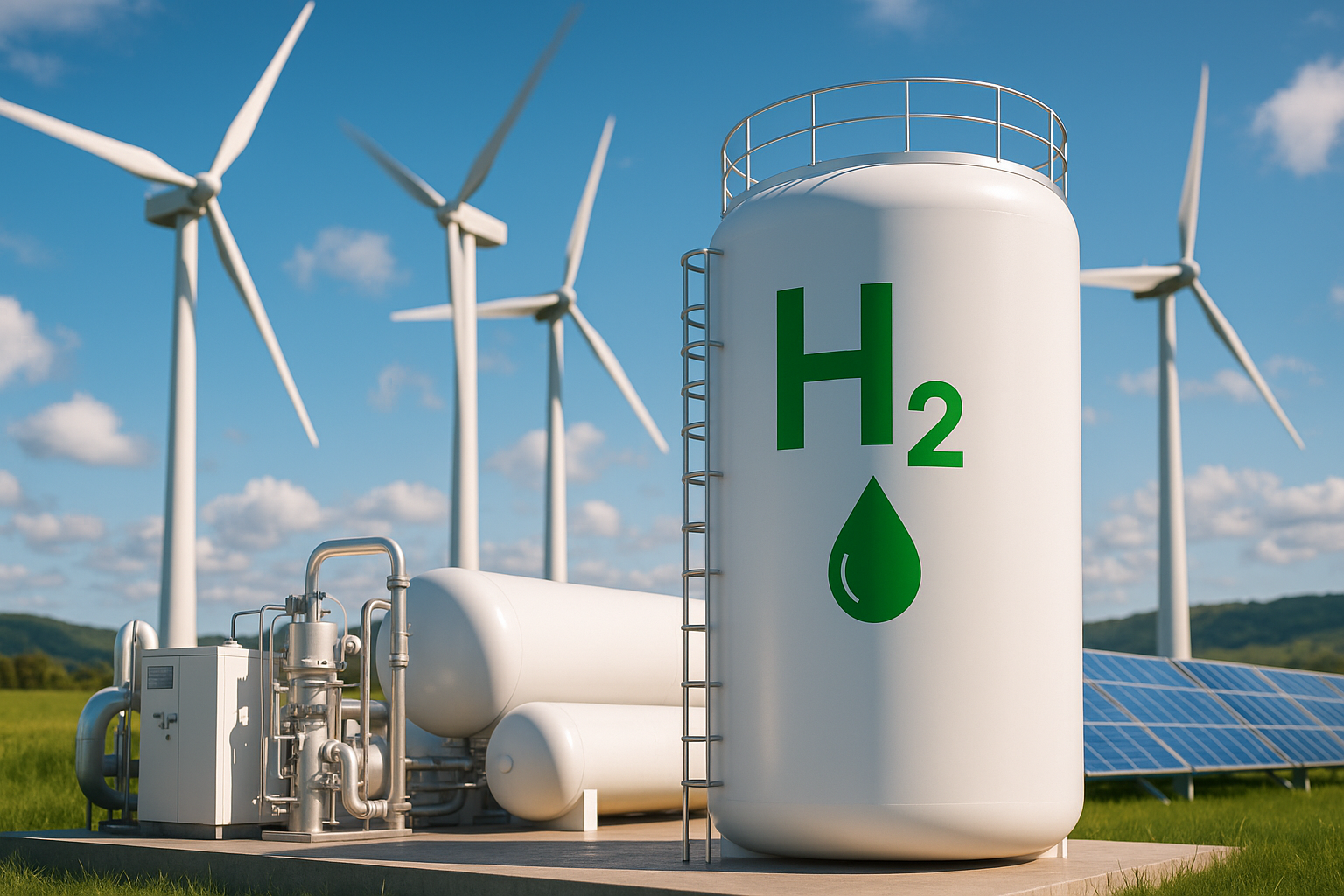IFC Backs Green Hydrogen to Power Global Shift Toward Net-Zero Emissions by 2050
Green hydrogen, produced using renewable energy, is emerging as a key solution to decarbonize heavy industries and achieve net-zero targets. The IFC is actively supporting its global expansion through investments, feasibility studies, and partnerships, despite high costs and regulatory hurdles.

Global efforts to limit the rise in average global temperatures to 1.5°C are increasingly falling short, prompting a renewed emphasis on more aggressive decarbonization strategies across every sector of the global economy. Among the emerging solutions, green hydrogen is gaining prominence as a potentially transformative technology capable of decarbonizing the most challenging sectors. A new briefing by the International Finance Corporation (IFC), a member of the World Bank Group, sheds light on the crucial role clean hydrogen, especially green hydrogen, could play in steering the world toward net-zero emissions.
Hydrogen Today: Powering Industries, Fueling Emissions
Hydrogen itself is a naturally occurring element found in water and hydrocarbons. It is commonly extracted using two primary methods: electrolysis of water and extraction from fossil fuels. Currently, the global hydrogen market is heavily skewed toward fossil fuel-based production. According to the International Energy Agency (IEA), around 95 million metric tons of hydrogen were consumed in 2022, primarily for industrial applications such as ammonia production, oil refining, and chemical manufacturing. Alarmingly, 99 percent of this hydrogen was produced using fossil fuels, resulting in carbon emissions estimated between 1,000 and 1,200 million metric tons of CO₂ annually.
Green Hydrogen: A Clean Revolution in the Making
The term "clean hydrogen" refers to hydrogen produced through processes that emit little to no greenhouse gases. Within this category, green hydrogen stands out as the most sustainable form. It is produced through the electrolysis of water, powered entirely by renewable energy sources such as solar, wind, hydroelectric, or geothermal energy. This process results in zero carbon emissions, making it an environmentally sound alternative for sectors that are traditionally difficult to decarbonize. A visual diagram included in the IFC briefing illustrates the production chain: electricity generated from renewable sources is transmitted to an electrolyzer, which then splits water into hydrogen and oxygen. The resulting green hydrogen can then be utilized in multiple ways, as a feedstock for chemicals like fertilizers and plastics, as a heat source in industries like steel, cement, and food production, or as a fuel for transport and power generation.
Investment Boom or Bust? Barriers to Market Takeoff
While the technology holds enormous potential, transitioning from fossil fuel-based hydrogen to green hydrogen remains fraught with challenges. One of the most significant obstacles is the high cost of production, which is currently much greater than that of conventional hydrogen methods. Additionally, the market and regulatory environments are still developing and often lack the incentives or frameworks needed to support large-scale investment. According to the IEA’s 2023 Global Hydrogen Review, while more than 1,000 large-scale green hydrogen projects have been announced, representing expected investments of over $320 billion by 2030, only a small fraction have reached final investment decision. This lag highlights the need for stronger institutional support, clearer regulatory policies, and greater financial innovation to unlock the sector’s potential.
IFC's Bold Bet on a Greener Future
In recognition of green hydrogen’s strategic importance, IFC has ramped up its efforts to support its global deployment. Collaborating with the World Bank and the Multilateral Investment Guarantee Agency (MIGA), IFC is playing a lead role through its Green Hydrogen Hub. This internal platform draws on the expertise of its Global Manufacturing, Energy, and Climate teams to drive green hydrogen initiatives. As of December 2023, IFC is involved in nearly a dozen green hydrogen projects across various regions, including Latin America, Africa, Europe, the Middle East, and Asia. These projects collectively represent potential investments of more than $10 billion.
IFC’s involvement goes beyond mere financial support. The institution is actively funding feasibility studies, co-developing pilot projects, and offering strategic advisory services to improve project bankability. It is also working to mobilize concessional finance, and provide both equity and debt instruments to catalyze investment in the sector. These efforts are aimed not only at accelerating the green hydrogen industry but also at creating jobs and fostering economic growth in emerging markets. By helping to de-risk early investments, IFC is laying the groundwork for a more robust and scalable hydrogen economy.
Beyond its investment efforts, IFC emphasizes collaboration with the private sector to build the infrastructure necessary for green hydrogen deployment. This includes everything from renewable energy generation and grid integration to storage and distribution networks. The institution leverages its global reach and technical expertise to support the development of comprehensive hydrogen ecosystems that can deliver environmental benefits and spur industrial transformation.
The momentum around green hydrogen is building, but much work remains to be done to turn potential into reality. The road ahead requires coordinated action from governments, development institutions, donors, and the private sector to overcome cost barriers, design effective regulatory frameworks, and ensure long-term market viability. Green hydrogen, with its ability to decarbonize heavy industry, long-haul transport, and other hard-to-abate sectors, stands as one of the most promising levers in the fight against climate change. IFC’s proactive role in this space signals a growing recognition that the transition to a low-carbon future will demand not only technological innovation but also strategic investment and cross-sector collaboration on a global scale.
- FIRST PUBLISHED IN:
- Devdiscourse
ALSO READ
World Bank Urges Bold, Cross-Sector Action to Tackle Air Pollution in Nepal
World Bank Grants $30M to Yemen for Digital Finance and Education Recovery
World Bank Urges SME Empowerment to Boost Inclusive Growth in Philippines
India's Green Hydrogen Leap: A Commitment to Energy Transition
World Bank Warns of Persistent Poverty and Unemployment as Growth Remains Fragile










